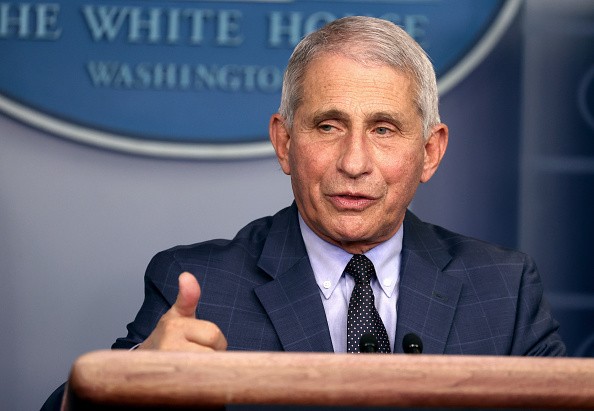'Fauci Effect' Leads to Jump in Applications to US Medical Schools

Medical schools in the country experienced an 18% increase in application this year in what some admission officers have called the "Fauci effect."
According to New York Post, people started gaining interest in medical school amid the coronavirus pandemic. This was inspired by Dr. Anthony Fauci's example in leading the fight or the "Fauci effect."
The Association of American Medical Colleges (AAMC) said the number of applications to medical schools for 2021 went up 18% from the same time last year.
Due to the "Fauci effect," the increase was far from what it was like in the past decade, when there was only a 2.5% increase each year.
'Fauci Effect' More Prominent in Some Universities
The change was far higher in other universities, like the Boston University's school of medicine that saw a 27% increase in applications, reported The Hill.
Overwhelmingly, Stanford University School of Medicine reported a 50% increase in applications. That means some 11,000 people vying for only 90 free seats to the medical school.
Harvard Medical School also saw a big increase in applications.
"We have seen a growth in the number of applications," said Ekaterina Pesheva, director of science communications and media relations at Harvard Medical School.
Read also: FACT CHECK: Did Pfizer Research Head Say COVID-19 Vaccine Could Cause Female Sterilization?
The medical school recorded an increase of 19 percent compared to last year's number of completed applications.
But the trend isn't new to Harvard since there has been a noticeable 10% increase in applications compared with last year.
Increase in Applications to Medical School Similar to Military Wave in 9/11
One of the reasons that admission officers saw for the increase was inspiration.
They thought when people look at doctors in their own communities, they tell themselves it's a way for them to "make a difference," Boston University's Associate Dean of Admissions Kristen Goodell told NPR.
"This large of an increase is unprecedented," Geoffrey Young, senior director of student affairs and programs at AAMC, told Yahoo Life.
Young also told NPR that this year's increase in applications to medical schools was similar to the wave in the U.S. military after the 9/11 attacks.
"So far in my lifetime, at least, and for as long as I've been in medical education, that's the only comparison that I could make," he added.
Fauci was flattered to be linked to the increase and be the namesake of such a phenomenon but added that local doctors also deserve credit for the positive news.
He said that instead of calling it the "Fauci effect" it should be the "effect of a physician who is trying to and hopefully succeeding in having an important impact on an individual's health."
Fauci also said that if his name helps in getting more young people into medical school, then "go ahead and use my name."
Dr. Jessica Shepherd, an ob-gyn and surgeon in Texas, told Yahoo Life that Fauci was a "wonderful mentor" for medical professionals
She believed his "medical acumen" will be helpful to the healthcare system's new doctors.
Another factor that could be causing the increase of applications was the amount of free time in everyone's hands, since people were forced to stay in and do most of their work from home, said The Hill.
Subscribe to Latin Post!
Sign up for our free newsletter for the Latest coverage!
© 2026 Latin Post. All rights reserved. Do not reproduce without permission.














